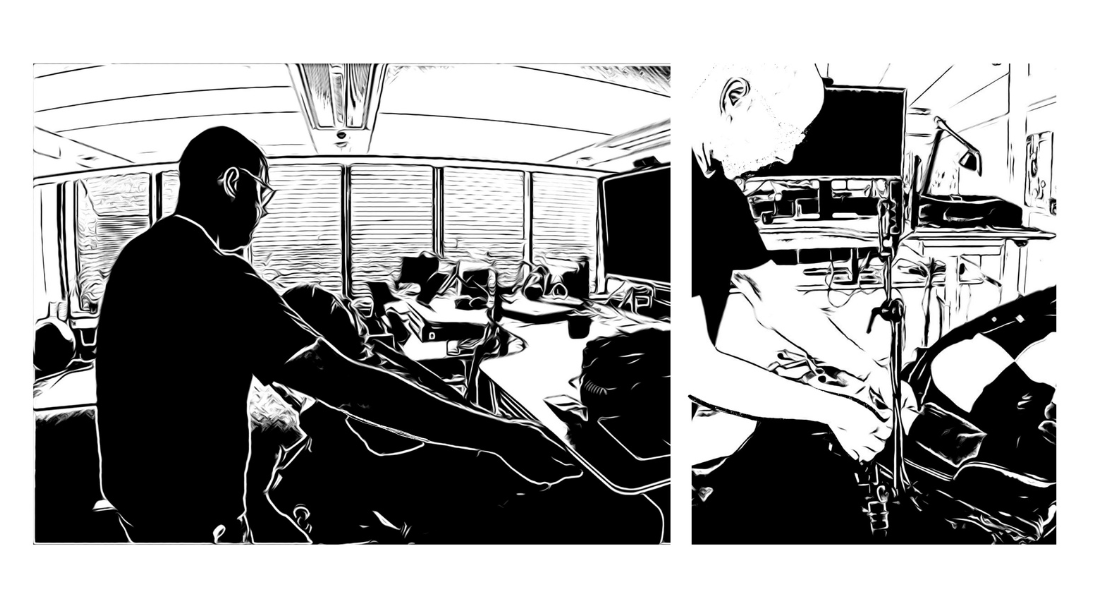Understanding the everyday and innovative uses of technology at work by people with disabilities (NewWorkTech)
The Horizon Europe project NewWorkTech aims to improve the accessibility and inclusion of the world of work and promote the rights and equality of people with disabilities.
 NewWorkTech brings together expertise in the social sciences, humanities and engineering with the common goal of an equitable and efficient world of work through responsible research and innovation. NewWorkTech addresses the need to break down accessibility barriers in the labor market that affects one fourth of Europeans who have a disability (101 million people). European data show that one fifth of people with a disability in Europe are unemployed and lack financial autonomy. NewWorkTech’s will contribute with new knowledge that will inform a more inclusive future of work.
NewWorkTech brings together expertise in the social sciences, humanities and engineering with the common goal of an equitable and efficient world of work through responsible research and innovation. NewWorkTech addresses the need to break down accessibility barriers in the labor market that affects one fourth of Europeans who have a disability (101 million people). European data show that one fifth of people with a disability in Europe are unemployed and lack financial autonomy. NewWorkTech’s will contribute with new knowledge that will inform a more inclusive future of work.
The project counts with interdisciplinary partners across Europe and is coordinated by Professor Maija Hirvonen at Tampere University. In Denmark, Professor Brian Due at the University of Copenhagen leads work package 1 (WP1) including two studies in Denmark and Italy where Postdoctoral researchers Barbara N. Carreras and Sara Merlino conduct video ethnographic research to explore how people with disabilities use technologies at work, from home or at their office. In Denmark, Carreras will study how blind people, people with low vision, wheelchair users, and neurodivergent persons use assistive technology and AI technology to work from home or at their workplaces. In Italy, Merlino will study how neurodivergent persons and people with down syndrome use assistive technology.
NewWorkTech adopts a participatory approach following the disability rights commitment to the “Nothing About Us, Without Us” agenda. In doing so NewWorkTech involves research participants and disability-led organizations in developing new understandings and innovations of technological tools as well as reflecting on the risks involved in their use.
The empirical contributions of the project will be accompanied by the development of new theory to conceptualize human-technology relationships. New knowledge gained by NewWorkTech’s partners will serve as the basis for new technological solutions, theoretical innovations, an ethical framework, policy recommendations and practical knowledge that will contribute to breaking down accessibility barriers in the world of work and shed light on innovative and responsible uses of emergent technologies.
NewWorkTech partners in Denmark study the everyday uses of technology at work by people with disabilities drawing from theory and methods within ethnomethodology (EM), multimodal conversation analysis (CA), science and technology studies (STS), Universal Design (UD), and video ethnography.
- Preparing ethical approval and data management with partners and relevant disability-led associations.
- Preparing and co-designing an accessible study design to carry out fieldwork in Denmark and Italy.
- Information meetings and dialogue with potential participants and workplaces of interest.
- Video ethnography, semi-structured interviews and participant observations in Denmark and Italy on video-mediated work and the use of assistive technology from home and at workplaces.
- Collaborative data analysis identifying access barriers and innovative practices.
- Theoretical development of the post-praxeological methodology.
- Insights and practical user cases in collaboration with partners and participants.
- Dissemination of practical applications to technology use and development.
- Tampere University (Finland)
- The University of Oulu (Finland)
- The University of Copenhagen (Denmark)
- The University of Warwick (UK)
- The National Research Council of Italy (Italy)
- The European Platform for Rehabilitation (Belgium)
- Autism Foundation Finland (Finland)
- The Italian Down Syndrome Association (Italy)
- The Danish Institute for Visual Impairment IBOS (Denmark)
- Be My Eyes (Denmark)
Researchers
| Name | Title | Phone | |
|---|---|---|---|
| Due, Brian Lystgaard | Professor | +4535335929 | |
| Merlino, Sara | Postdoc | +4535329050 | |
| Nino Carreras, Barbara Patricia | Postdoc | +4535322965 |
Funding
Project period: 2024 - 2027
Funding: €3 million
Grant agreement ID: 101177176
PI of work package 1: Brian Due Lystgaard

